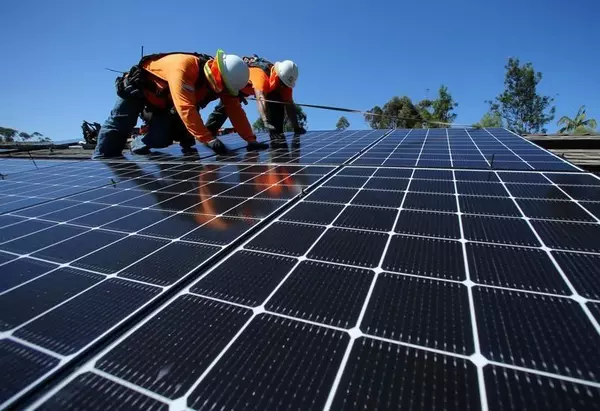
Protecting Your Home Sale: How Rising Insurance Costs Can Impact Your Transaction and What We Can Do About It
If you’ve been following the news or speaking with friends about real estate lately, you’ve probably heard that home insurance costs are going through the roof. As of October 2024, the insurance industry is in crisis, and rising premiums are creating new challenges for homebuyers and sellers alike. If you’re thinking about listing your home, it’s important to be aware of how these skyrocketing insurance costs could affect your sale. As your real estate agent, my goal is to ensure a smooth and successful transaction, even in the face of these new hurdles. In this blog post, I’ll walk you through the issue, explain how it might impact your sale, and share steps we can take together to avoid potential pitfalls and keep your deal on track. The Insurance Crisis: What’s Going On? Insurance premiums are rising at an alarming rate due to several factors: Increased frequency of natural disasters: More severe storms, floods, and wildfires have led to a sharp rise in claims, pushing premiums up. Higher reinsurance costs: The companies that insure insurers are raising their prices, which trickles down to homeowners. Economic inflation: Repair and construction costs are increasing, making it more expensive for insurance companies to pay out claims, which again means higher premiums for homeowners. For sellers, these rising costs can create unexpected complications when buyers discover that their monthly payments—including insurance—are higher than they anticipated. In some cases, it can even cause a buyer’s financing to fall through, putting your sale at risk. How Insurance Costs Can Affect Your Home Sale If you’re preparing to sell your home, there are a few key ways this insurance crisis might impact your transaction: Buyers' Loan Approvals: Higher-than-expected insurance premiums can push a buyer’s debt-to-income ratio over the limit, causing their loan approval to fall apart at the last minute. Delayed or Denied Insurance Coverage: Buyers may experience delays in securing insurance, especially if your property is in a high-risk area. In some cases, they might struggle to find coverage at all, which can delay closing. Buyer Hesitation Due to Unexpected Costs: Buyers who are unprepared for these sudden premium hikes might second-guess their offer or try to renegotiate the deal after discovering the true cost of insuring your home. While these scenarios might sound daunting, there are several proactive steps we can take together to mitigate these risks and bulletproof your transaction. Steps to Avoid Insurance-Related Pitfalls 1. Provide Buyers with Early Insurance Information One of the best ways to prevent last-minute surprises is to help buyers understand the insurance costs associated with your property upfront. I recommend getting an insurance quote early in the listing process—especially if your home is in an area prone to natural disasters or has unique features that might affect coverage. By having this information readily available, buyers will have a clear picture of their total costs from the beginning, reducing the chance of sticker shock later. 2. Highlight Recent Home Updates and Mitigations If you’ve made any recent upgrades to your home—such as installing a new roof, updating electrical systems, or adding storm-proofing features—let’s make sure to highlight them in the listing. Insurance companies often offer discounts for homes that have been updated to reduce risk. By showcasing these improvements, we can help buyers secure better insurance rates, making your home more attractive and affordable. 3. Be Transparent About High-Risk Zones If your home is located in an area that requires specialized insurance, such as flood or windstorm coverage, it’s essential to address this upfront. We’ll make sure that buyers are aware of any additional insurance requirements so they can budget accordingly. Being transparent from the start prevents surprises that could derail the transaction later on. 4. Encourage Buyers to Shop Around for Insurance Not all insurance companies are the same, and some offer better rates than others. We can provide buyers with a list of recommended insurance agents or encourage them to shop around for the best possible quote. This will give them more options and increase the likelihood that they’ll find coverage that fits their budget. Working Collaboratively to Keep Your Deal on Track In today’s market, closing a deal is a team effort. By working closely with other agents, insurance providers, and mortgage lenders, we can stay one step ahead of any potential insurance-related issues. 1. Partner with Reliable Insurance Agents I’ve built relationships with trusted insurance agents who are well-versed in the current market and understand the unique challenges buyers are facing. By collaborating with these professionals, we can ensure that buyers receive prompt and accurate quotes, helping them secure coverage faster and with fewer hurdles. 2. Communicate with the Buyer’s Agent Keeping an open line of communication with the buyer’s agent is essential. If we know insurance is likely to be an issue, we can work together to find solutions before it becomes a deal-breaking problem. This could involve negotiating concessions or finding creative ways to address buyers’ concerns about insurance costs. 3. Work with Lenders to Resolve Issues If insurance premiums are impacting a buyer’s ability to secure financing, we’ll collaborate with their lender to explore possible solutions. Sometimes, it’s as simple as adjusting the loan structure or extending the financing timeline to allow more time for insurance approval. Whatever the issue, we’ll work together to find a solution that keeps the deal on track. Moving Forward with Confidence While rising insurance costs can add a new layer of complexity to selling your home, they don’t have to derail your plans. By being proactive, transparent, and working collaboratively with everyone involved, we can navigate this challenge together and ensure a successful closing. My goal is to guide you through this process with as little stress as possible, and that means being prepared for every potential obstacle—including the current insurance crisis. With the right strategy in place, we’ll keep your transaction moving forward smoothly, so you can focus on your next chapter. If you’re considering selling your home or have questions about how rising insurance costs might affect your sale, feel free to reach out. I’m here to help and make sure we get ahead of any issues before they arise.

Maximizing Your Home Sale: Why the Highest Offer Isn’t Always the Best
When it comes to selling your home, everyone wants to get the best possible price. But what if I told you that the highest offer isn’t always the best offer? At the heart of a successful home sale is a strategic listing price that generates excitement, attracts multiple buyers, and creates an "auction effect." This strategy doesn’t just lead to more offers—it can help you secure the best overall terms for your sale. Why the Right Price Matters Our approach to listing your home starts with setting a price that encourages buyer interest. The goal is to create enough buzz that we attract multiple offers. When buyers see competition, it can drive up the price naturally. This "auction effect" is the result of market demand, pushing buyers to outbid each other for the chance to own your home. Beyond Price: Evaluating the Best Offer When we receive multiple offers, it’s tempting to focus on the highest dollar amount. But a successful sale is about more than just price. Here are other critical factors we consider: Contingencies: Does the buyer need to sell their home first? Are they asking for an inspection or appraisal contingency? These factors can impact the likelihood of a smooth and timely closing. Closing Timeline: Some buyers may offer flexibility or a quicker close that aligns with your needs. Financing Security: A cash offer or a pre-approved buyer may be more reliable than a higher offer that still depends on loan approval. Earnest Money: A larger earnest money deposit signals that the buyer is serious and less likely to walk away from the deal. Concessions: Some buyers may ask for repairs, closing cost assistance, or other concessions that could impact your bottom line. At the end of the day, the best offer is the one that meets your financial and personal goals while minimizing potential complications. We’ll review every detail with you to ensure you make the best choice. Ready to Learn More About Our Selling Strategy? Selling your home is one of the biggest financial decisions you’ll make, and we’re here to guide you every step of the way. If you’re interested in learning more about our proven strategy to maximize your sale, contact us today. Let’s discuss how we can position your home to attract multiple offers and get the best overall terms. Reach out today to schedule a consultation. Together, we’ll make sure your home sale is a success!
Categories
Recent Posts








